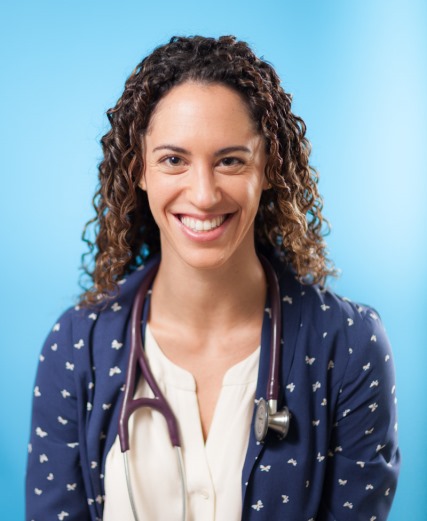By Emily Dawson
Across Canada and around the globe, physicians and health care professionals are rapidly adapting practices as they look to find effective ways to deliver care while minimizing the risk of contracting COVID-19 for patients and health care providers. To help keep regular pre- and post-natal care and routine well-child visits on track, Dr. Tali Bogler came up with an alternative to the typical schedule to keep these patients safe during the pandemic.
“Pregnant women, newborns, and children due for vaccinations still require care during the pandemic. Given the need to reduce the number of visits…the timing and frequency of visits can be adjusted,” the physician in St. Michael’s Family Health Team (FHT) and Chair of Family Practice Obstetrics said in a new paper published by Canadian Family Physician.
“The first thing we did was provide protected time for more vulnerable patients,” Dr. Bogler said. “We have reserved the 9-11 a.m. window every day to have appointments with the elderly, immunocompromised, expecting moms and newborns.”
While much of the conversation on how best to safeguard vulnerable populations speaks to care for the elderly and people with compromised immune systems, Dr. Bogler says pregnant and newborn patients should not be overlooked.
“My pregnant patients often feel vulnerable at the best of times, particularly first-time parents,” she said. “Now they worry about what the pandemic means for their health, their pregnancy and their baby. They’re asking questions like, ‘Should I be coming in for my prenatal ultrasound?’ or, ‘What happens if I get COVID-19 and how will it impact my baby?’”
The FHT has also transitioned to virtual care appointments whenever possible, including phone and video calls, and has implemented new ways to communicate with their patients.
“Patients are relieved to know that they don’t necessarily have to come in and that we can manage their care in a safe way, and we can also answer their immediate questions,” she said.
In cases where a visit can’t be done virtually – certain prenatal visits, those requiring a vaccination and the like – they are bundling visits to reduce trips into the clinic and hospital.
They’re also finding a way to create a virtual community for their patients. Prenatal classes, which usually allow new parents to come together, share resources and form a community, have been cancelled for the time being – in person.
“Along with a couple of other St. Michael’s physicians and incoming residents in obstetrics and gynecology, we’re starting a virtual platform through Instagram to have these conversations,” said Dr. Bogler. “It’s like a prenatal class but with a focus on COVID-19, where parents can ask questions and connect with others who might be delivering at the same time. At a time when we’re not able to physically meet with people, it’s our way of bringing them together.”
Emily Dawson is a senior communications adviser at Unity Health Toronto.


